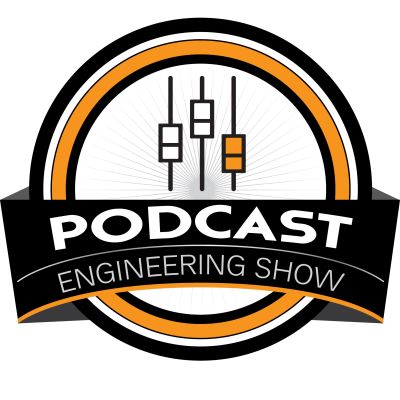This show focuses on the technical production of audio podcasts. Chris Curran chats with podcasters about their audio equipment, software and workflow to help you learn how to produce better sounding podcasts. You’ll also learn solutions to common audio issues as well as plenty of tips and tricks. By listening to this show you will gain a TON of knowledge and skills that will make a HUGE difference in your sound quality _and_ save you time! Subscribe/Follow today and start listening! Your host Chris Curran has a background in podcast production (Forbes, Dun & Bradstreet, J&J, etc) as well as music production (Sarah McLachlan, Jeff Buckley, Foreigner, etc). When he entered podcasting in 2012, he noticed that most podcasters (and producers) do not have a good understanding of fundamental audio engineering concepts, which sabotages the quality of their sound from the very beginning. This show, as well as Podcast Engineering School, helps podcasters and producers reach professional levels of podcast audio production.
https://podcastengineeringschool.com/category/show/
episode 38: Garth Humphreys
My guest is Garth Humphreys, host and producer of Audio Pizza, iBlindTech and Aussie Mac Zone. Garth lives in Australia and we had a fun session.
We discussed his equipment and workflow, including:
- Rode NT-1
- Amadeus Pro
- Audio Hijack Pro
- FX Chains on individual tracks as well as the main mix bus
- Auphonic to append and prepend music, intro, etc.
- Editing tips
We also covered 3 handy functions in Reaper (they are also possible in most other DAW's):
- Allows for 3 states of ripple editing (we cover all 3)
- SWS/BR: Normalize loudness of selected tracks to -23 LUFS
- Item: Auto trim/split items (remove silence)
One more interesting tidbit - when Garth sent me his local recording he sent it in FLAC format (Free Lossless Audio Codec). Digital audio compressed by FLAC's algorithm can typically be reduced to 50–60% of its original size and decompress to an identical copy of the original audio data. It's handy for sharing large audio files as long as the receiving person has the ability to decompress the file back into a WAV file, for instance. (many software programs can do this)
Thanks for all the great info you shared, Garth! And for having a fun time with me on the show ;)
DID YOU KNOW........We exist for the purpose of helping you, so please comment below with any questions or remarks. Thanks for listening!
Want to Start a Business or Have a Career as a Podcast Producer/Engineer?
Listen and Subscribe in iTunes, Google Play, Stitcher, TuneIn Radio, Android, RSS
